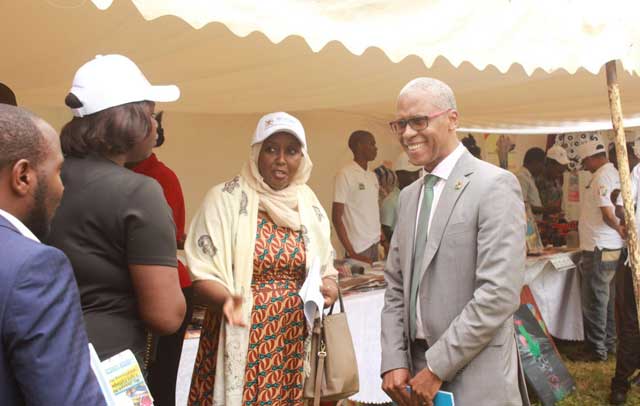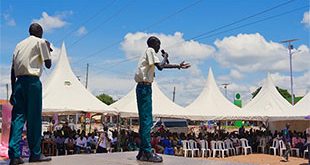
Kampala, Uganda | THE INDEPENDENT | Migrants Kampala slums have been asked to integrate nationals in their businesses to foster social cohesion with their host communities.
Dr Antonio Querido, the Acting Resident Coordinator of the United Nations in Uganda says extending an olive branch to host communities will eliminate the commonly stated sources of grievances between immigrants and host communities.
Dr Querido says that social cohesion will build stronger and peaceful communities without the fears of unemployment, political differences and poverty, which, according to the International Organization for Migration are the key sources of grievances in Kampala slums.
Dr Querido was speaking at St. Peter’s Primary School, Nsambya during the commemoration of the International Migrants’ Day this afternoon. He said host communities can benefit from the culture, languages and business acumen of migrants they receive and host.
Sahra Farah, the Chief of Mission of the United Nations’ International Organization for Migration (IOM) in Uganda says four top Kampala slums are already tapping the benefits of social cohesion in Kampala. The slums are Bwaise, Kisenyi, Katwe and Kabalagala, home to 85 percent of Kampala’s residents.
Farah said that under the European Union-funded Strengthening Social Cohesion and Stability in Slum Populations’ Project, hosts communities are benefiting from new business skill sets in vocational and livelihoods for youth at risks of radicalization.
Beneficiaries of the Project in Kabalagala say they are using seed capital from the project to create employment, address radicalization, human trafficking and earn decent livelihoods.
Josephine Lule Najjemba, the Director of Phina Lule Fashions located on Human Rights Road in Kabalagala says the project supported her group to start an African fabric design business with just two sewing machines and five human dummies last year.
Najjemba, a single mother of three boys says “I quit my business in Kampala for a cheaper rental in Kabalagala. I now pay my rent and supply customers in Kampala and the villages”. Najjemba’s monthly residential rent is 100,000 Shillings while the business requires 200,000 Shillings. She intends to venture in bridal gowns, school uniforms and increase sales of the African fabrics commonly known as Bitenge.
Part of Najjemba’s clients are migrants from Somalia and Ethiopia living in Kabalagala. She says their relationship is cordial and the migrants have asked her for training.
Frederick Mugisha, the Executive Director of ACTogether, a non-government Organization in Kabalagala says that their findings indicate that approximately 70 new migrants enter the city every day. ACTogether conducts language classes for new migrants entering Kabalagala in order to integrate them in cooperatives savings with host communities.
The International Organization for Migration says there are 272 Million migrants around the world and one in every seven people is a migrant.
*******
URN
 The Independent Uganda: You get the Truth we Pay the Price
The Independent Uganda: You get the Truth we Pay the Price



